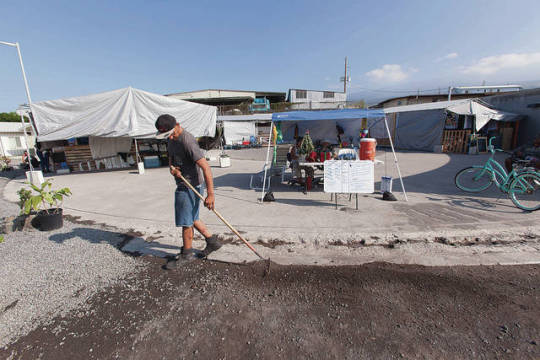
Photo by Michael Darden of Star Advertiser, used only for a school assignment.
Last August, Camp Kikaka in Kailua Kona received funds to bring in a shower, security, the porti-pot toilets and the essence of a community. It was located next to another homeless shelter, HOPE, which offered more services. The HOPE director wrote it off as too chaotic to work. There were fights, and one unreported stabbing in the arm of one camp resident. Nearly all of the residents struggled with mental or drug issues. Over a period of eight months half of the 58 residents “were kicked out, arrested, or left on their own.” (Star Advertiser)
The funding for the security disappeared first, leaving only a shift from midnight to 4 am, and during the last three months even that job funding was cut.
In my opinion communities like this live or die by the type of people willing to be the protectors. It is something that can’t be left to the police. Secure walls, secure communication, and a bouncer are features that help provide safety when a camping community is formed. The people needing help need security to begin to heal. The availability of this is lacking in Kailua-Kona. Twenty-four hour security costs $15,400 per month. Our campus has followers of Jesus and there’s still no way it can operate without people who keep the peace.
With key people operating tent camps, they can work, though I wonder how long that key person will stay at that location. It takes a loving, yet protective structure to keep a facility like this going. Security is only part of the community’s need. The camp residents also need a connection to counselors, advisors, and community in order to heal, so that they don’t end up being homeless again.